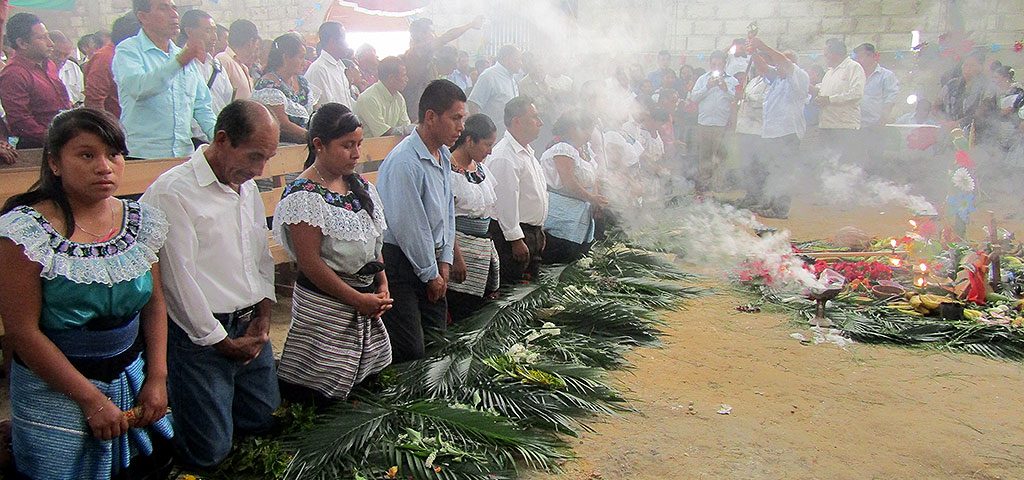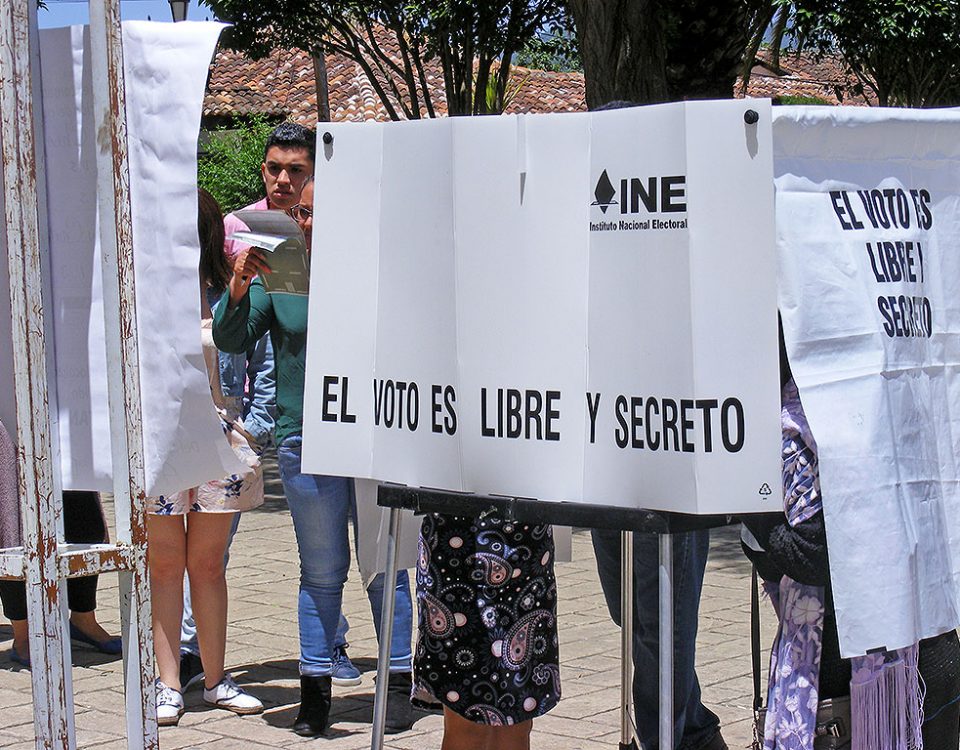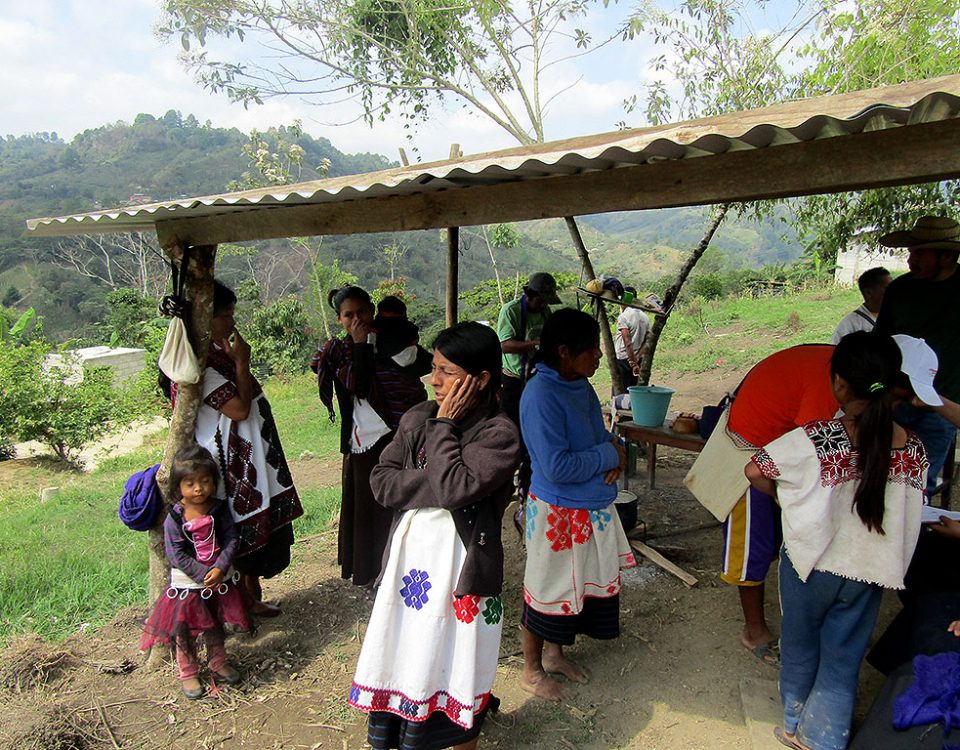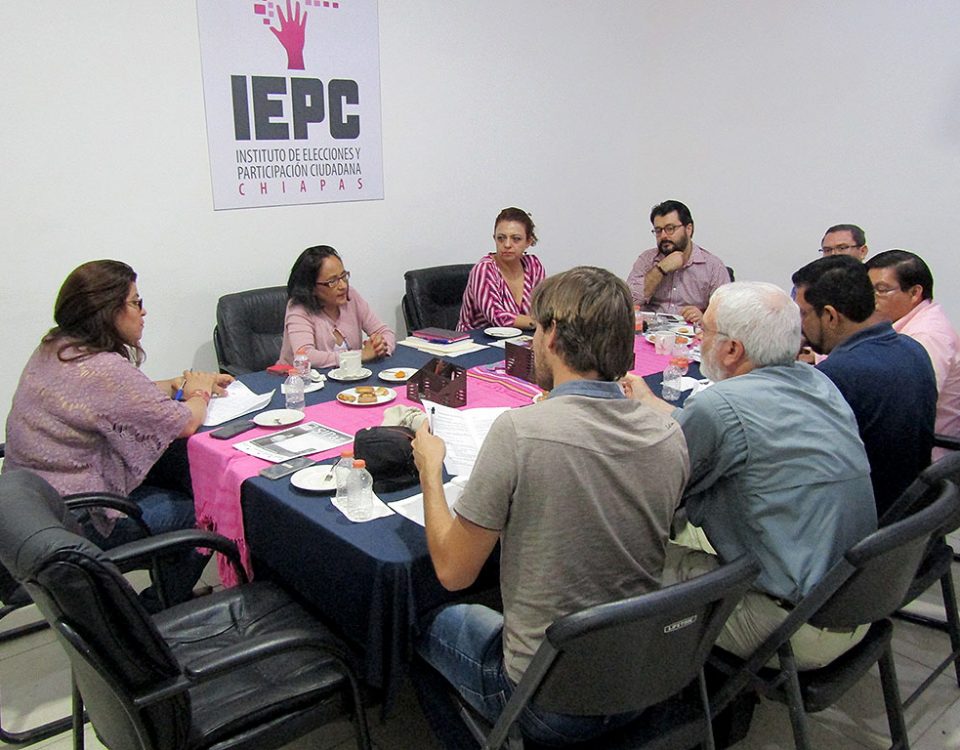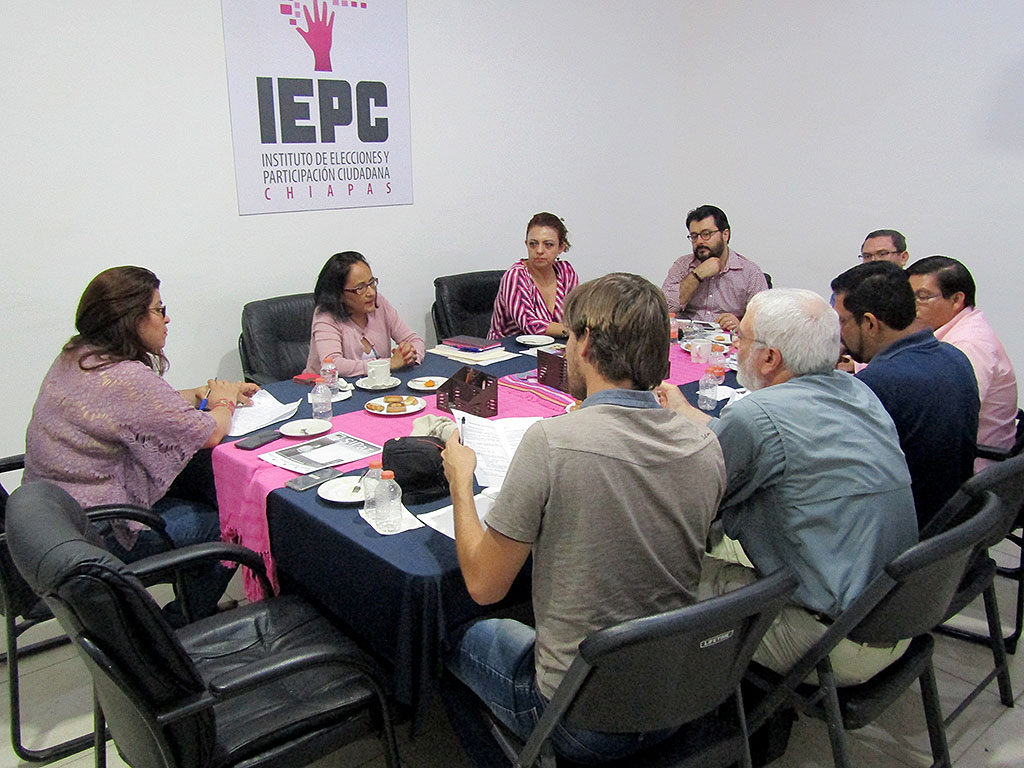
SIPAZ Activities (Mid-May to mid-August 2018)
22/09/2018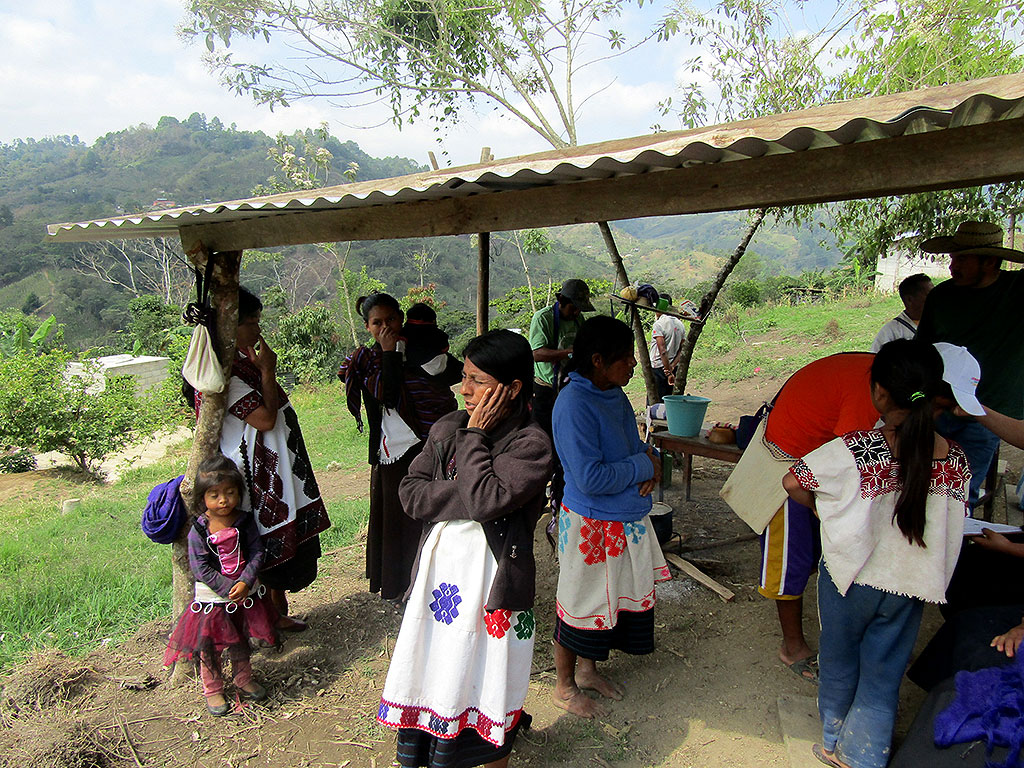
FOCUS: The tragedy of forced internal displacement in Mexico – one of the pending issues for the new government
22/09/2018ARTICLE: Sowing positions for self-determination – the peoples of Chiapas in their struggle for autonomy, the experiences of Chilon and Sitala
In a pluricultural state such as Chiapas, home to the largest diversity of indigenous peoples in Mexico, the struggle for the right to self-determination and autonomy of the people is a historical struggle, which was articulated as one of the central demands of the Zapatistas in the San Andres Accords on indigenous rights and culture in the nineties.
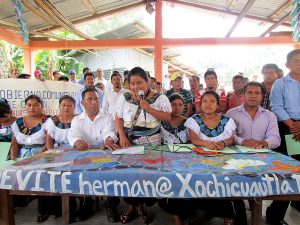
Celebration in which the community positions of the men and women who will make up the Councils of the Community Government formed for the municipality of Chilon were “sown”, Bachajon, may 2018 © SIPAZ
During this electoral year, the names of three Chiapas municipalities have been part of this struggle, which, after a long trajectory of organization, have continued constructing community governments under their own regulatory systems: Oxchuc, Chilon and Sitala. Oxchuc is the only municipality in the state where elections were officially suspended at the municipal level until the National Institute of Anthropology and History (INAH in its Spanish acronym) finalizes the ruling ordered by the Electoral Court of the State of Chiapas (IEPC in its Spanish acronym) to determine whether elections under the system of customary law should proceed.
The lawyer Ivette Galvan Garcia, coordinator of the Strategic Litigation Commission in the Bachajon Mission and who is following the legal processes of the cases of Chilon and Sitala, insists that “to talk about the beginnings of community government is also to talk about the processes of struggle that have taken place in Chiapas”, since “the defense of political autonomy through the construction of community governments is also a struggle for the defense of the territory.” Galvan traces the beginning of the movements in these municipalities to 2015 when an important political positioning occurred through a null vote in the municipal elections. The null vote was a reaction to the division and rupture of community harmony, or “lekil kuxlejalil” in Tseltal, caused by the political parties.
In search of a new path, communities began to organize a series of talks in the municipalities of Chilon and Sitala at the beginning of 2016, with the accompaniment of the Bachajon Mission, specifically under their area of defense, which is the Indigenous Rights Center (CEDIAC in its Spanish acronym). These “dialogues of knowledge” sought to be a space for communities to reflect on their old forms of organization and to determine a new form of government which would strengthen the social fabric, create greater transparency, and respect the ways of communities.
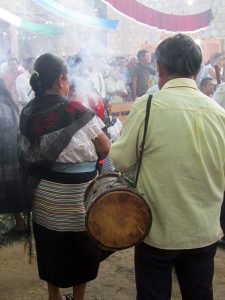
Celebration in which the community positions of the men and women who will make up the Councils of the Community Government formed for the municipality of Chilon were “sown”, Bachajon, may 2018 © SIPAZ
The next stage of systematization on the progress of the talks took place during the same time as they learned from other struggles, such as in Cheran, a municipality in the state of Michoacan, a paradigmatic case of the struggle for political autonomy in Mexico. In November 2016, they also received the support of the Movement in Defense of Life and Territory (MODEVITE in its Spanish acronym), which demanded at the conclusion of their 15-day mega-pilgrimage that year, the recognition of their “communitarian ways of exercising government and authority.” They affirmed that, “community organization is our weapon against division, the cure for fear and of nourishing hope among our peoples.”
According to Galvan, these steps were “the foundations for reflection, which in 2017 would be fulfilled with the election of community positions in each of the assemblies in the communities.” These “elected community promoters of government” were the ones in charge of their communities and presented the request before the IEPC, which “could be translated into an election of the municipal authorities through the customary laws and an exercise of the municipal government to the Tzeltal’s own way.”
After the judicial analysis of the cases in January 2018, several obstacles arose in regards to authority, due to the legislative vacuum that exists in the electoral legal code of the state of Chiapas in terms of the recognition and exercise of the right to self-determination. Galvan says that there were useful networks created by militant lawyers accompanying this type of case. This is due to the legal precedent set in 2011 in the case of Cheran, where the Electoral Court of the Judicial Power of the Federation (TEPJF in its Spanish acronym), recognized the constitutional right of peoples to self-regulation, which is binding jurisprudence for the state authorities of Chiapas. Therefore, “it is not something that can or cannot be stopped, but they have to do it because it is a question of human rights, because there is a wider protection for the peoples.”
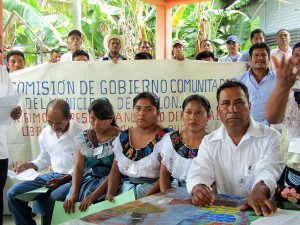
Celebration in which the community positions of the men and women who will make up the Councils of the Community Government formed for the municipality of Chilon were “sown”, Bachajon, may 2018 © SIPAZ
In May of this year, ceremonies for “sowing positions” of the community government council were held in Chilon and Sitala. The fact that six of twelve members in Chilon and three of eight members in Sitala are women emphasizes the participation of women in community life. Despite the fact that the community governments are still in a legal process of recognition and that the IEPC has scheduled the consultations for Chilon and Sitala for 2019, the councilors assumed their responsibility before their communities and demanded the recognition of a plurality of democracies, in which they do not look for “new rulers, if not another way to govern.” It remains to be seen how the coexistence of the community governments with the municipal governments elected last July 1st will continue through the political parties.
With these processes, critical voices fear the creation of “a parallel country to Mexico”, which would represent a threat to national unity. But Galvan says that fighting for self-determination is “more like fighting for democracy in Mexico and for a re-foundation of the Mexican state.” For her, it is a question about the actual validity of the San Andres Accords and a reconfiguration of the relationship with the peoples so that “they are no longer treated as subjects of public interest, but as subjects with specific rights, who are makers of their own history.” These two experiences of Chilon and Sitala have not been the first processes of building autonomy in Chiapas, as this year the 15th anniversary of the Zapatista Caracoles (autonomous regions) was celebrated.
Galvan says that, “people have to continue organizing at the local level.” This is reflected in the words of the councilors of Chilon, who in their sowing of offices pronounced: “What today was sown in our hearts, will gradually germinate in the life of our people. Let no ruler deceives the people! “

